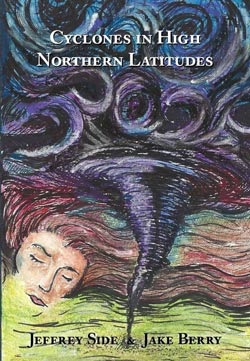Description
Yonder
Rodger Kamenetz
ISBN: 978-1-944884-58-1 (paper)
978-1-944884-59-8 (ebook)
106 Pages • March, 2019
“For the past 15 years I’ve been working with dream clients, immersed in their dreams. I call this healing practice Natural Dreamwork. The work is phenomenological. Paying close attention to time-space-feeling in dreams, I learned that dream narratives are often deceptive.
“At core a dream is a poem disguised as a story.
“I still did not know how to apply that insight to writing. I had a practice of writing down my dreams every night but these were not yet poems. One dawn I found the secret: instead of writing down my dream, I could write a poem instead. A poem in the wake of the dream.
“That morning Yonder was born.” —Rodger Kamenetz
This collection of prose poems from the author of The History of Last Night’s Dream, The Jew in the Lotus and To Die Next To You brims with respect for the genre, with homages to forebears from Baudelaire to Max Jacob, Russel Edson to Kafka.
Praise for Rodger Kamenetz and Yonder
Rodger Kamenetz asks the most accurate and urgent questions in his wonderful new collection—and he has the wisdom not to answer them (except with other, better questions), so that each stop is a starting place, and we are constantly delighted as we discover the limits of what we thought we learned. Recognition and misrecognition are key motifs in these exquisite prose poems, and while it may be in the latter that the poetry of the truth most brilliantly flowers, each step of the process has the elegant and inevitable pacing of a religious vision. Don’t be afraid to be converted! Readers who enter this book will find themselves in a dreamy resonant meditative space of Keatsian uncertainty and Kafkaesque parable, where attention is a devotion, and the lyric speaker seeks a knowledge which brings both redemption and further damage. A splendid antidote to our image and brand-obsessed moment: in Yonderidentity is sought in order to be surrendered. Give in! “In dream logic we pour like smoke from one body to another.”
—Laura Mullen, author of Complicated Grief
In Roger Kamenetz’s new book, the elsewhere of its title turns out to be the composite dreamscapes of the big Bees (Baudelaire, Berryman and Barthelme). Imagine the paintings of Arp and Dali translated into English and French by way of the Borscht Belt and you have a sense of Kamenetz’s neo-surrealism where “A face sings a gigantic vowel and opens to a vow, an O as the round eye of surprise” and “A waterfall of laughter makes a near palindrome.” With a dark humor more wry than dry (“There is a God but God does not exist”), Kamenetz sings the body’s electric Imaginary.
—Tyrone Williams, author of As iZ
The prose poems of Rodger Kamenetz are mysterious. Are they dreams? Or parables? Zen koans? Or surrealist films? Like all of the above, they make a kind of crazy sense, the sort of wisdom only a jester can attain. More puzzling and explosive with every read, these startling revelations are so illogical as to be perfect.
—Kit Robinson, author of Marine Layer
Rodger Kamenetz’s Yonderis aptly named; through humor, wisdom, daring and pathos, it perpetually aims for what’s beyond us: “By all means ignore me said the poet into the silence. The feeling is mutual, silence did not reply.” I found myself laughing out loud — “He has been known in Memphis as Elvis The Shabbas Goy”; “If it were my dream, the escalator would go to Kansas”—learning from Midrash after Midrash—“a mockingbird sang an inhuman psalm. King David would would have been glad to hear that praise … would have blessed that avian music with fluttering hands”—and often, quite simply, moved: “And when I go who will carry this envelope? Who read the letter inside?”
—Jacqueline Osherow, author of Ultimatum from Paradise
Rodger Kamenetz’s Yonderbelongs in the company of the classic prose poems of Charles Baudelaire and Russell Edson. Surrealist, comic, Kamenetz is a magician of metaphor and imagination who pulls out of the hat of his subconscious, the unpredictable and astounding. Read Yonderand be amazed.
—Jesse Lee Kercheval, author of Cinema Muto







Reviews
There are no reviews yet.